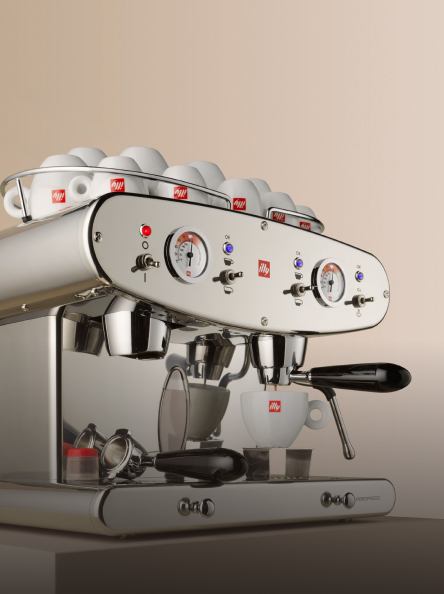Choosing the right commercial coffee machines is a critical decision for any café, restaurant, or hotel in the UK hospitality industry. With consumer expectations around coffee quality constantly rising, the machine you select can significantly impact both operational efficiency and customer satisfaction.
This guide will help you navigate the essential criteria to consider when investing in a professional machine—ensuring your choice supports both your business goals and your brand reputation.
Why does the choice of commercial coffee machines matter?
As coffee quality increasingly defines the customer experience, the machine behind each cup becomes a key driver of both operational performance and brand perception. Your particular coffee machine can provide a stamp of approval from customers & support your ‘status’ in the market! A well-chosen machine ensures consistency, supports peak service, and helps deliver a product that meets today’s high consumer expectations.
In this article, you will learn:
- The strategic value of coffee in UK hospitality
- Understanding the types of commercial coffee machines
- Matching machine type to your business model
- Key features to consider in a professional coffee machine
- Trends to keep in mind when choosing your coffee machine
The strategic value of coffee in UK hospitality
In the UK, coffee has evolved far beyond its role as a simple hot drink—it now represents a deeply ingrained cultural ritual and a vital touchpoint in the out-of-home customer experience. Britons consume more than 98 million cups of coffee every day, placing the UK among the top ten global markets for coffee consumption (British Coffee Association, 2024). This widespread and habitual engagement with coffee extends across every segment of the hospitality and workplace sector.
Coffee even overtook the famous ‘English Breakfast’ tea drink as the top hot bev this year!
For many consumers, coffee marks a moment of pause, comfort, or social interaction—whether it's a solo cappuccino before work, a mid-morning meeting companion, or the final note of a restaurant meal. In fact, research shows that 53% of diners in casual restaurants believe that a high-quality coffee enhances the overall dining experience (Survey: Casual Dining Restaurants, Jan 2025), and 75% of hotel guests report that coffee quality significantly impacts their breakfast satisfaction (Survey: Hotels, Mar 2025). These findings highlight the importance of coffee not just as a product, but as a contributor to emotional and experiential value.

Moreover, in a context shaped by rising consumer expectations and cost-consciousness, coffee has become a strategic lever. It’s one of the few menu items where the perception of value is closely tied to quality rather than volume or price. Guests are not willing to compromise on their daily coffee and are increasingly willing to pay more for a consistently excellent cup—especially when associated with premium service, recognised sourcing practices, or artisanal preparation.
Whether in a high-street café, in a hotel breakfast room, or in a restaurant, the consistency, flavour, and presentation of the coffee offering can act as a point of differentiation in an increasingly competitive and experience-driven market.
Understanding the types of commercial coffee machines
There is no one-size-fits-all solution when it comes to selecting a commercial coffee machine. The right choice depends on the type of venue, expected volume, and level of expertise available. Broadly speaking, machines fall into four main categories:
- Manual (lever) machines: these provide full control over extraction but require skilled baristas. Ideal for artisan coffee shops focused on quality and customisation.
- Semi-automatic machines: a balance between manual skill and automation, offering consistency while retaining barista craftsmanship. Suitable for medium-to-high volume venues like busy cafés or bistros.
- Automatic machines: automate key processes such as dosing, brewing, and cleaning. Best suited for high-traffic environments—hotels, office canteens, or QSR formats—where speed and consistency are essential.
- Super-automatic (bean-to-cup): these systems handle the entire process from grinding to pouring. Often used in office environments or hotel buffets where staff may not be trained baristas but quality still matters.

Finding the perfect machine match to suit your business model
Selecting the right commercial coffee machine means aligning equipment capabilities with your service model, volume requirements, and customer expectations across different dayparts. Each hospitality segment presents distinct challenges and opportunities that the coffee machine must support.
Coffee shops and cafés
Coffee shops operate in high-frequency, time-sensitive environments, where customer flow peaks in the morning and again around lunchtime. In this context, speed and consistency are paramount. Machines must be able to:
- Deliver multiple extractions per minute without compromising quality
- Handle back-to-back orders during rush hours
- Support a wide variety of drink options, including plant-based milk alternatives and iced coffee, which are growing in popularity, especially among younger demographics (Lumina Intelligence, Apr 2024).
Given the rising consumer interest in customisation and premiumisation, many operators in this channel are choosing semi-automatic or high-capacity super-automatic machines, sometimes integrated with POS systems or loyalty apps to streamline service and personalise the offer.
-1.jpeg?width=500&height=333&name=cq5dam.web.1280.1280%20(10)-1.jpeg)
Restaurants
In restaurants, coffee is typically served after meals, which shifts the priority toward quality over volume. However, even if demand is lower compared to cafés, expectations remain high—especially in casual dining and fine dining contexts, where coffee is often the final impression guests take away.
As such, coffee machines in restaurants should ensure:
- Excellent temperature and pressure control for optimal extraction
- Elegant presentation capabilities (latte art, crema quality) that reinforce brand perception
- Quiet operation and ease of use by non-specialist staff
Many restaurants opt for compact but high-quality machines, balancing aesthetics, ease of use, and performance—particularly important during peak post-meal service periods.
-1.jpeg?width=500&height=479&name=cq5dam.web.1280.1280%20(4)-1.jpeg)
Hotels
Hotels must address multiple use cases simultaneously: from breakfast service to in-room offerings and lobby or lounge coffee stations.
This complexity requires machines that are:
- Versatile, capable of producing both espresso-based and long-drink formats (e.g. americano, and milky serves)
- Self-service ready for breakfast buffets, with user-friendly interfaces for guests
- Compatible with bean-to-cup or capsule systems for in-room service or lower-staffed operations
.jpg?width=500&height=334&name=womaninbedroomdrinkingcoffe_hotelconsumptionmoments_3750x2500%20(1).jpg)
Key features to consider in a professional coffee machine
Beyond matching the type of machine to your business model, it's essential to evaluate a set of technical and operational criteria that directly impact service quality, operational efficiency, and long-term value. Choosing a commercial coffee machine is an investment—one that must support your team, satisfy your customers, and align with broader priorities like sustainability and cost control. Here are the five key factors to assess before making a decision.
Capacity and speed
One of the most critical performance indicators is the machine’s ability to handle peak demand. Whether it's a coffee shop serving 300 cups during the morning rush or a hotel buffet catering to dozens of guests in a 45-minute breakfast window, capacity must be sufficient to maintain service continuity without bottlenecks.
Failing to meet peak demand not only affects efficiency but can damage the customer experience—especially in time-sensitive environments where speed is expected.
Ease of use
Staff experience and training levels vary widely across hospitality environments. For this reason, ease of use is a key consideration:
- Super-automatic machines are ideal in hotels or restaurants with minimal staff training—they handle grinding, dosing, extraction, and milk frothing automatically, reducing margin for error.
- Semi-automatic machines offer more control and are preferred in environments where barista skill adds value to the offer (e.g. specialty cafés or premium restaurants).
- Intuitive interfaces, programmable drink options, and clear maintenance prompts contribute to smoother operations—especially with high turnover or seasonal staff.
Maintenance requirements
Maintenance often becomes a hidden cost and operational burden when not considered upfront. A machine that requires frequent or complex interventions can disrupt service, increase labour costs, and shorten equipment lifespan.
Look for machines with automatic cleaning cycles, descaling alerts, and accessible internal components. In addition, training staff in basic daily cleaning routines and scheduling regular technical maintenance is essential to preserve cup quality and hygiene standards.
Sustainability and energy efficiency
Sustainability is not only an ethical imperative, but also a commercial differentiator. According to recent hospitality research, 70% of UK consumers consider sustainability an important factor when choosing where to eat or drink out (illy Casual Dining Survey, 2025). Selecting equipment with environmentally conscious features supports both operational goals and customer expectations.
Support and after-sales service
No matter how advanced the machine, technical issues will arise—and when they do, timely support becomes critical. A machine breakdown during peak hours can cause reputational and financial damage, particularly in high-volume or premium locations. Opt for suppliers who offer comprehensive warranties, service contracts, and on-site support with short response times.
Investing time in assessing these five areas will help ensure that your commercial coffee machine not only performs as expected, but also supports your brand positioning, operational efficiency, and sustainability goals over the long term.
-1.jpeg?width=500&height=333&name=cq5dam.web.1280.1280%20(16)-1.jpeg)
Trends to keep in mind when choosing your coffee machine
The UK coffee market is evolving rapidly, shaped by changing consumer expectations, increased demand for personalisation, and a heightened focus on sustainability and digitalisation. When investing in a commercial coffee machine, operators must now look beyond traditional functionalities and consider how emerging trends will affect both product offer and operational requirements.
Iced and cold coffee options
Cold and iced coffee is no longer a niche preference. Today, it represents a fast-growing subcategory, particularly among younger demographics and in casual, on-the-go contexts. According to Lumina Intelligence, cold and iced coffee drinks are driving menu growth, fuelled by consumer desire for indulgence and refreshment.
Coffee equipment should therefore support:
- Cold milk frothing or cold brew compatibility
- Easy preparation workflows for frappés, iced lattes, and other seasonal drinks
Preference for milk-based drinks over espresso
In contrast to some continental European markets, UK consumers show a marked preference for milk-based coffee beverages. According to Lumina data, drinks like latte and cappuccino account for the majority of coffee occasions, while straight espresso represents only a small fraction of orders.
This makes it critical for operators to:
- Select machines with reliable milk systems, capable of producing consistent microfoam and varied milk textures
- Ensure compatibility with drinks such as flat whites, cortados, and lattes—formats that dominate UK menus and meet consumer expectations of both comfort and indulgence
Plant-based milk and customisation
UK consumers are increasingly health-conscious, sustainability-oriented, and attentive to dietary preferences. This has led to a steady rise in plant-based milk options and demand for customisation in terms of drink composition, size, and flavour.
- Machines with dual milk systems allow operators to offer both dairy and non-dairy alternatives (e.g., oat, almond, soy) safely and efficiently
- Programmable recipes and frothing temperature controls help ensure optimal results across different milk types
Digital connectivity and smart operation
Connectivity features are increasingly valuable in commercial settings. From real-time monitoring to predictive maintenance, digitally enabled machines support better decision-making and operational control.
Advantages include:
- Remote tracking of consumption data and performance
- Notifications for maintenance or supply needs
- Integration with loyalty systems or digital menus, enhancing customer engagement
These systems are particularly advantageous for multi-site operators, hotels, and large-scale foodservice venues, where efficiency and consistency are non-negotiable.
Choosing a commercial coffee machine means investing in consistency, efficiency, and customer satisfaction. In a market where expectations are rising and milk-based, personalised drinks dominate, the right equipment must adapt to evolving trends—without compromising on quality.
illy offers a tailored range of professional machines designed to meet the needs of cafés, restaurants, hotels, and offices. To help you find the best fit, we offer a free trial and consultation, giving you the chance to experience the quality firsthand.
Request your free illy trial now!
In the coffee shop world, every detail contributes to defining the unique customer experience when they approach the bar and order a coffee.
A thorough understanding of all aspects is crucial to drive the business towards sustainable success over time.
Subscribe to the illy newsletter to keep up to date with all the latest news from the Hospitality world!





